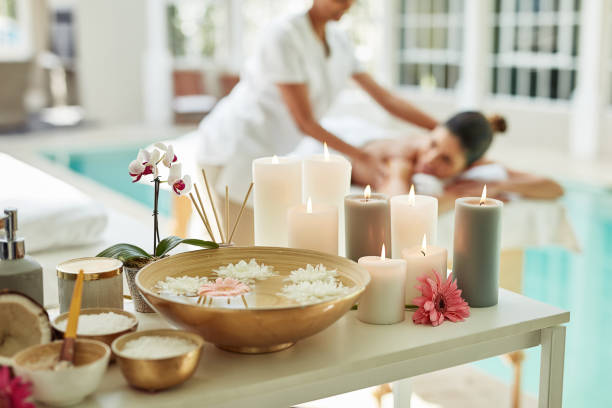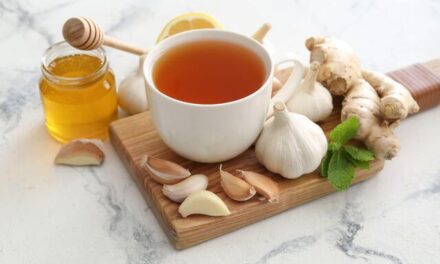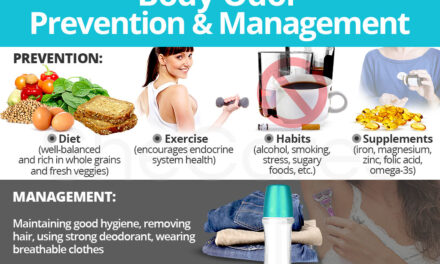Essential oils have been getting a lot of buzzes recently for helping with everything from headaches to sleep to sore throats. But do these concentrated plant-based oils work?
Essential oils can make a positive impact on your health and well-being as long as you safely use them
Want to give essential oils a try? what conditions they may help treat and how to find quality essential oils, since not all products are created equal.
Read the below full article by Pritish to learn about Aromatherapy & Essential oils for relaxation.

What Are Essential Oils?
Essential oils are plants. They’re made by steaming or pressing various parts of a plant (flowers, bark, leaves, or for, it) to capture the compounds that produce fragrance. It can take several pounds of a plant to produce a single bottle of essential oil. In addition to creating a scent, essential oils perform other functions in plants, too.
What Is Aromatherapy?
Aromatherapy is the practice of using essential oils for therapeutic benefit. Aromatherapy has been used for centuries. When inhaled, the scent molecules in essential oils travel from the olfactory nerves directly to the brain and especially impact the amygdala, the emotional center of the brain.

Essential oils can also be absorbed by the skin. A massage therapist might add a drop or two of wintergreen to oil to help relax tight muscles during a rubdown. A skincare company may add lavender to bath salts to create a soothing soak.
What Are Essential Oils Good For?
Although people claim essential oils are natural remedies for several ailments, there’s not enough research to determine their effectiveness in human health. Results of lab studies are promising — one at Johns Hopkins found that certain essential oils could kill a type of Lyme bacteria better than antibiotics — but results in human clinical trials are mixed.
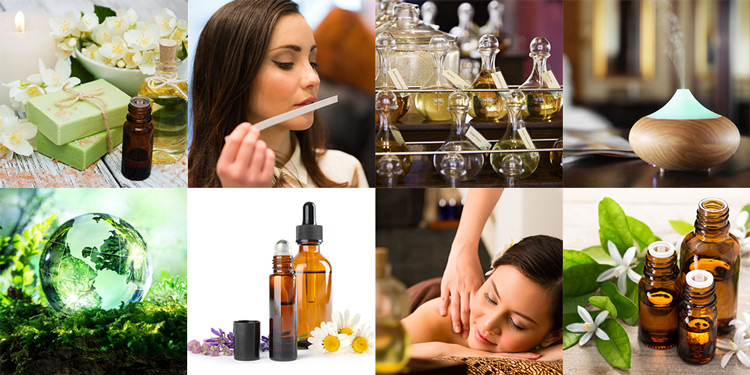
Some studies indicate that there’s a benefit to using essential oils while others show no improvement in symptoms. Clinical trials have looked at whether essential oils can alleviate conditions such as:
- Anxiety
- Depression
- Nausea
- Insomnia
- Low appetite
- Dry mouth
How Can You Use Essential Oils Safely?
The quality of essential oils on the market varies greatly, from pure essential oils to those diluted with less expensive ingredients. And because there’s no regulation, the label may not even list everything that’s in the bottle you’re buying. That’s why essential oils should not be ingested.
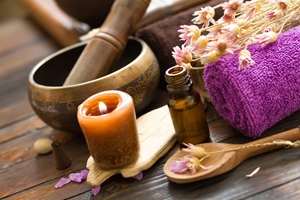
Johns Hopkins also advises against using essential oil diffusers, small household appliances that create scented vapor. Diffusion in a public area or household with multiple members can affect people differently. For example, peppermint is often recommended for headaches. But if you use it around a child who’s less than 30 months old, the child can become agitated. It could have a negative effect. Additionally, someone with a fast heartbeat can react adversely to peppermint.
The safest ways to use essential oils include:
Aromatherapy accessories: Necklaces, bracelets, and keychains made with absorbent materials you apply essential oils to and sniff throughout the day.

Body oil: A mixture of essential oils with a carrier oil such as olive, jojoba, or coconut oil that can be massaged into the skin. Because essential oils are concentrated, they can irritate. Avoid using them full-strength on the skin.
Aroma stick: Also called an essential oil inhaler, these portable plastic sticks have an absorbent wick that soaks up the essential oil. They come with a cover to keep the scent under wraps until you’re ready.
Benefits
Aromatherapy is a complementary therapy. It does not provide a cure for diseases, rashes, or illnesses, but it can support the conventional treatment of various conditions.
A eucalyptus vapor bath may relieve symptoms of a cold or flu.

It has been shown to reduce:
- Nausea
- Pain and body aches
- Anxiety, agitation, stress, and depression
- Fatigue and insomnia
- Muscular aches
- Headaches
- Circulatory problems
- Menstrual problems
- Menopausal problems
- Alopecia, or hair loss
Some types of psoriasis may find relief with aromatherapy, but a healthcare professional should advise about its use and application.
Digestive problems may benefit from peppermint oil, but it should not be ingested.
Toothaches and mouth sores can be relieved by clove oil, but this, too, should only be applied topically and not swallowed.
Supporters claim that these and a wide range of other complaints respond well to aromatherapy, but not all of the uses are supported by scientific evidence.
Visiting an aromatherapist
The aromatherapist should take a thorough medical history, and a lifestyle, diet, and current health history.
Aromatherapy involves a holistic approach, so it aims to treat the whole person. Treatments will be suited to the individual’s physical and mental needs. Based on these needs, the aromatherapist may recommend a single oil or a blend.
Depending on patient needs and preferences, the practitioner may recommend a single oil or a blend.
According to the National Cancer Institute (NCI), aromatherapy products do not need trusted Source FDA approval as long as there is no claim that they treat a specific disease.
An aromatherapist is not the same as a massage therapist, although a massage therapist may use aromatherapy oils.
Risks
Each essential oil has its chemical makeup and reason for use, so it is important to speak with a trained aromatherapist, nurse, doctor, physical therapist, massage therapist, or pharmacist before applying or using oil for healing purposes.
A trained professional can recommend and teach how to use each product, giving proper instructions on application or dilution.

Consumers should also be aware that the U.S. Food and Drug Administration does not monitor aromatherapy products, so it can be difficult to know whether or not a product is pure or if it is contaminated, or synthetic.
Some beauty and household products, such as lotions, make-up, and candles contain products that may appear to be essential oils, but they are synthetic fragrances.
Like medications, essential oils must be treated with respect. It is important to seek professional advice and to follow instructions carefully.
Allergic reactions to essential oils
A small number of people may experience irritation or allergic reactions to certain essential oils. You’re more likely to have a bad reaction if you have atopic dermatitis or a history of reactions to topical products. Although you can experience a reaction to any essential oil, some are more likely to be problematic, including:
- Oregano oil
- Cinnamon bark oil
- Jasmine oil
- Lemongrass oil
- Ylang-ylang oil
- Chamomile oil
- Bergamot oil
Because pure essential oils are potent, diluting them in carrier oil is the best way to avoid a bad reaction when applying them directly to the skin. If you get a red, itchy rash or hives after applying essential oils, see a doctor. You may be having an allergic reaction.
Which Essential Oils Are Best?
There are dozens of essential oils, all with different fragrances and chemical makeups. Which essential oils are best depends on what symptoms you’re looking to ease or what fragrances you prefer. Some of the most popular essential oils include:
Lavender oil: Many people find the lavender scent relaxing. It’s often used to help relieve stress and anxiety and promote good sleep.
Tea tree oil: Also called melaleuca, this essential oil was used by Australia’s aboriginal people for wound healing. Today, it’s commonly used for acne, athlete’s foot, and insect bites.
Peppermint oil: There’s some evidence peppermint essential oil helps relieve irritable bowel syndrome (IBS) symptoms when taken in an enteric-coated capsule (from a trusted health supplement provider). It may also relieve tension headaches when applied topically.
Lemon oil: Many people find the citrusy scent of lemon oil a mood booster. It’s also often used in homemade cleaning products.
How to find quality essential oils
The most important thing to consider when shopping for essential oils is product quality. But figuring out which oils are the best is challenging since no government agency in the U.S. provides a grading system or certification for essential oils. A big problem? Many companies claim their essential oils are “therapeutic grade,” but that’s just a marketing term.
Unfortunately, there are lots of products you might find online or in stores that aren’t harvested correctly or may have something in them that isn’t listed on the label.
Here are some tips to help you shop for pure essential oils:
Look at the label
It should include the Latin name of the plant, information on purity or other ingredients added to it, and the country in which the plant was grown.
Evaluate the company
Purchase products from a well-known and reputable aromatherapy company that’s been around for several years.
Choose dark-colored, glass containers
Pure essential oils are highly concentrated. They can dissolve plastic bottles over time, tainting the oil. Most companies package essential oils in small brown or blue glass bottles to protect the quality.
Avoid “fragrance oils”
Fragrance or perfume oils are made from essential oils combined with chemicals or entirely from chemicals. They’re not suitable for aromatherapy — instead, look for bottles that contain a single essential oil in its purest form (100% essential oil with no other fillers).

Compare prices
Essential oils range in price, depending on how involved harvesting and production are. Within a line, there should be a wide variety of prices — rose absolute or sandalwood oils will be more expensive, while sweet orange oil will be on the less expensive end. If you find a rock-bottom price for an expensive essential oil, it probably isn’t pure.
Essential oils can lift your mood and make you feel good with just a whiff of their fragrance. Some people may even help alleviate the symptoms of various conditions. For more information on how to incorporate them into a healthy lifestyle, consult an integrative medicine expert.

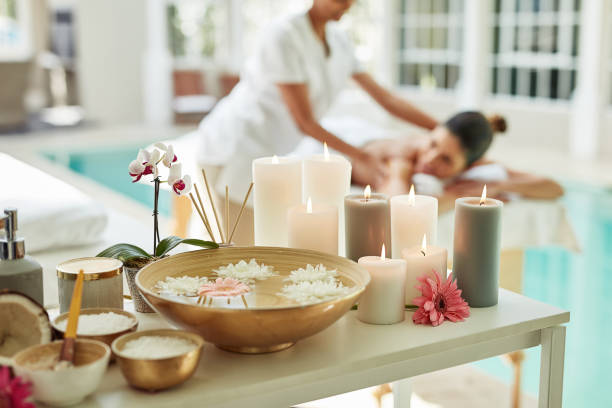
![Aromatherapy Pictures [HD] | Download Free Images on Unsplash](https://images.unsplash.com/photo-1556760544-74068565f05c?ixlib=rb-1.2.1&ixid=MnwxMjA3fDB8MHxzZWFyY2h8Mnx8YXJvbWF0aGVyYXB5fGVufDB8fDB8fA%3D%3D&w=1000&q=80)
